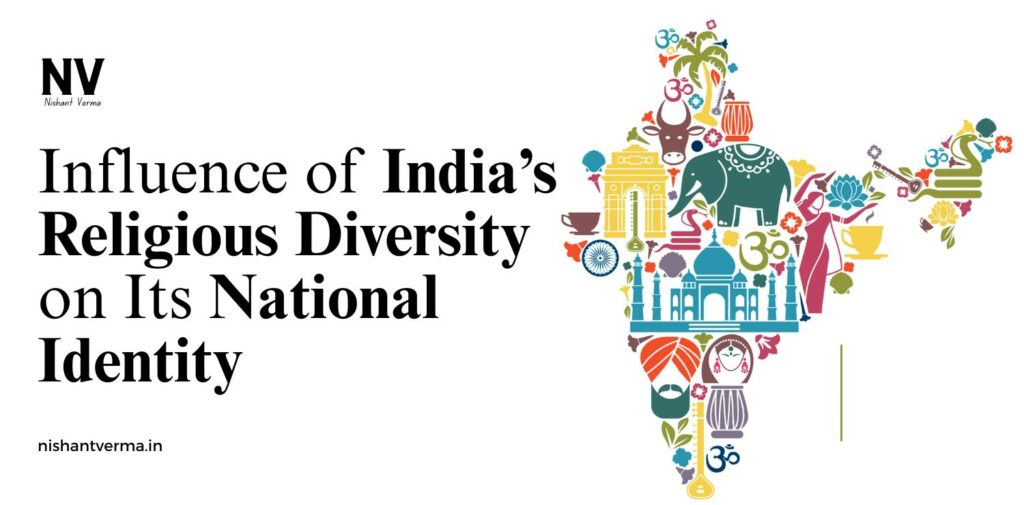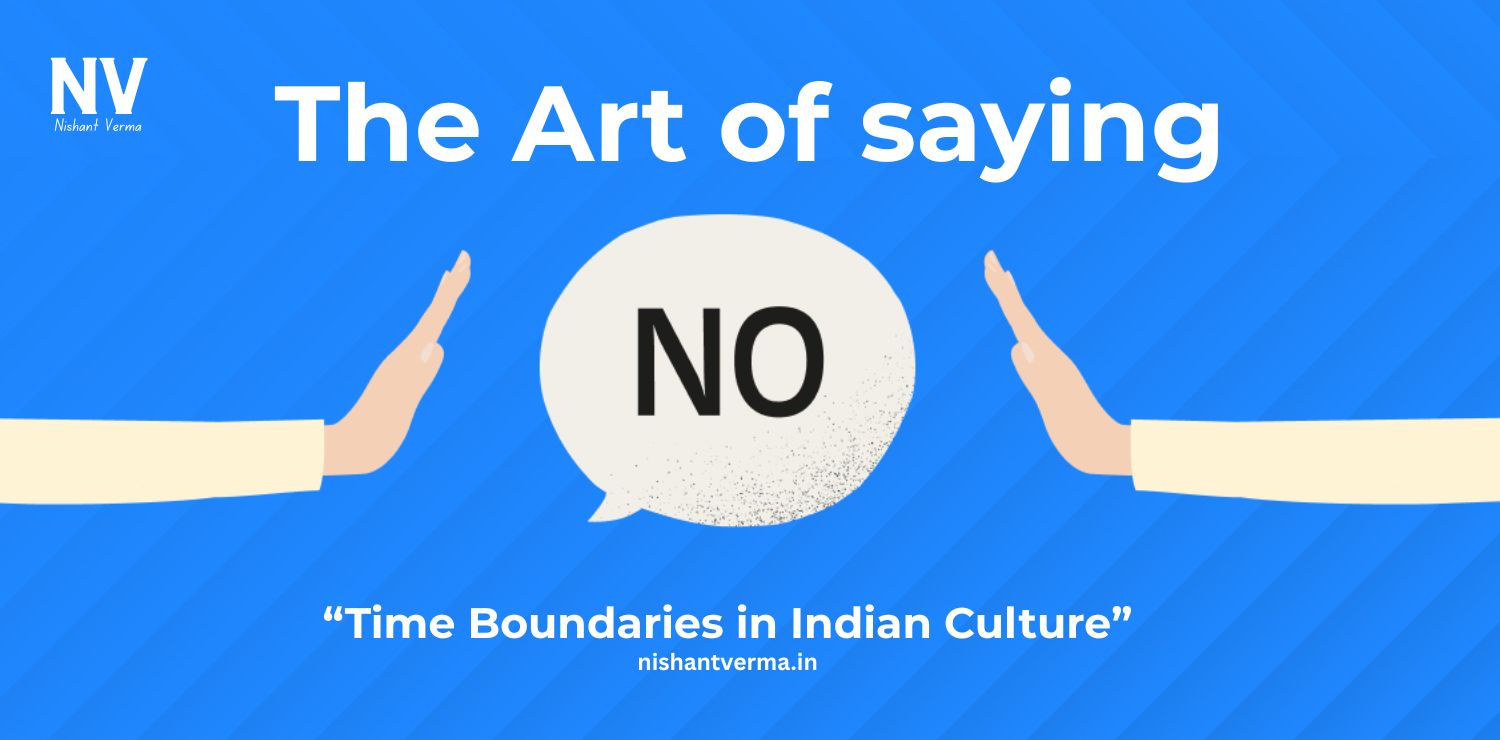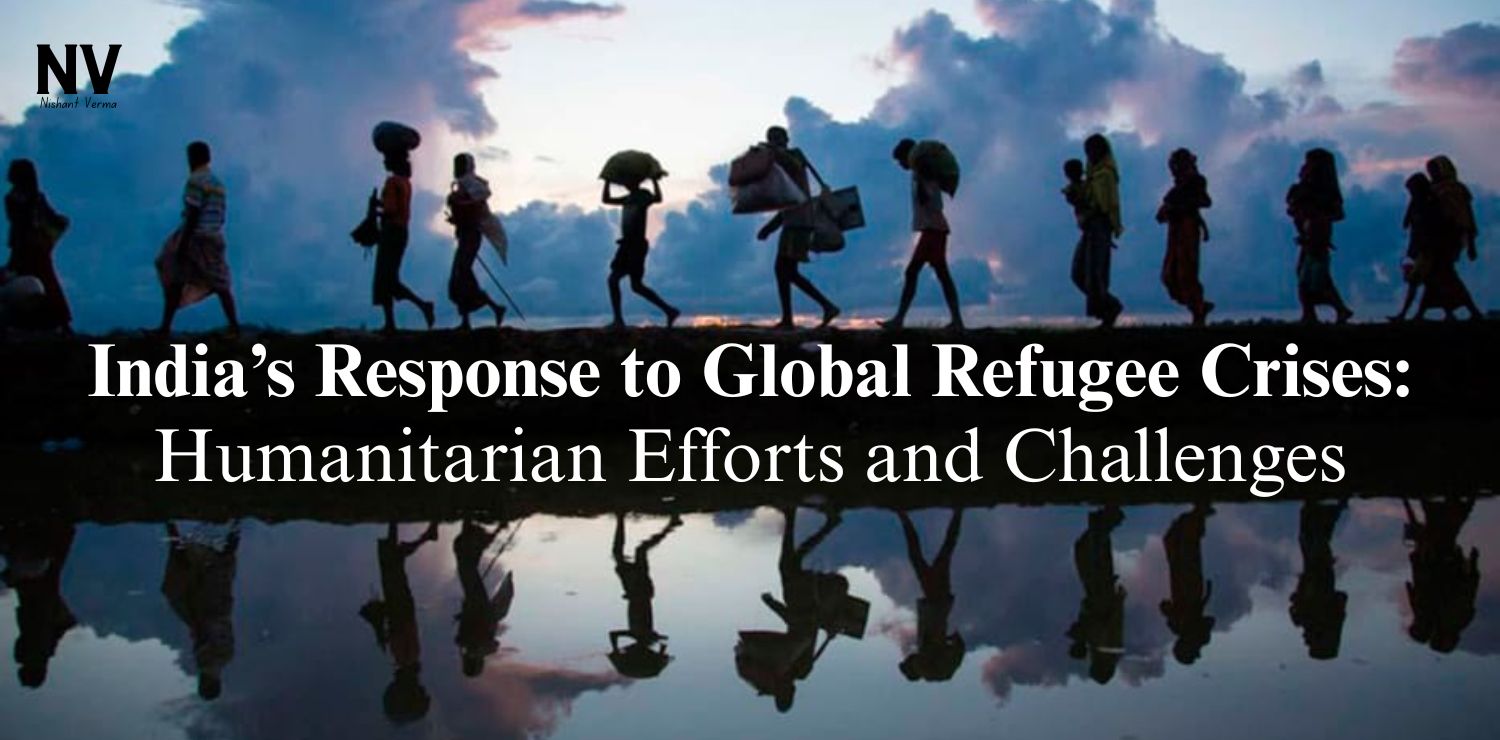India is known for its rich history, vibrant culture, and immense diversity. One of the most striking aspects of India’s identity is its religious diversity. With over 1.3 billion people, India is home to a wide range of religious beliefs and practices, including Hinduism, Islam, Christianity, Sikhism, Buddhism, Jainism, and many others. This diversity is not just a characteristic of Indian society; it plays a crucial role in shaping the nation’s identity, values, and social fabric. The influence of India religious diversity on its national identity is deep-rooted and multifaceted, affecting its culture, politics, and everyday life.
Religious Diversity as a Core Element of Indian Identity
India is often referred to as the birthplace of several major religions, including Hinduism, Buddhism, Jainism, and Sikhism. These religions have a profound influence on Indian culture and way of life, and their values continue to shape the nation’s national identity. At the same time, India is home to people who practice Islam, Christianity, and other faiths, creating a unique blend of traditions, rituals, and philosophies.
Religious diversity has been a defining feature of Indian society for centuries. For much of India’s history, different religious communities coexisted peacefully, contributing to a culture of tolerance, respect, and mutual understanding. The interaction between different religious communities has led to the development of a pluralistic society where different beliefs and practices are acknowledged and valued. This is reflected in the national motto “Satyamev Jayate,” meaning “Truth Alone Triumphs,” which emphasizes the importance of truth and justice for all, irrespective of one’s religion.
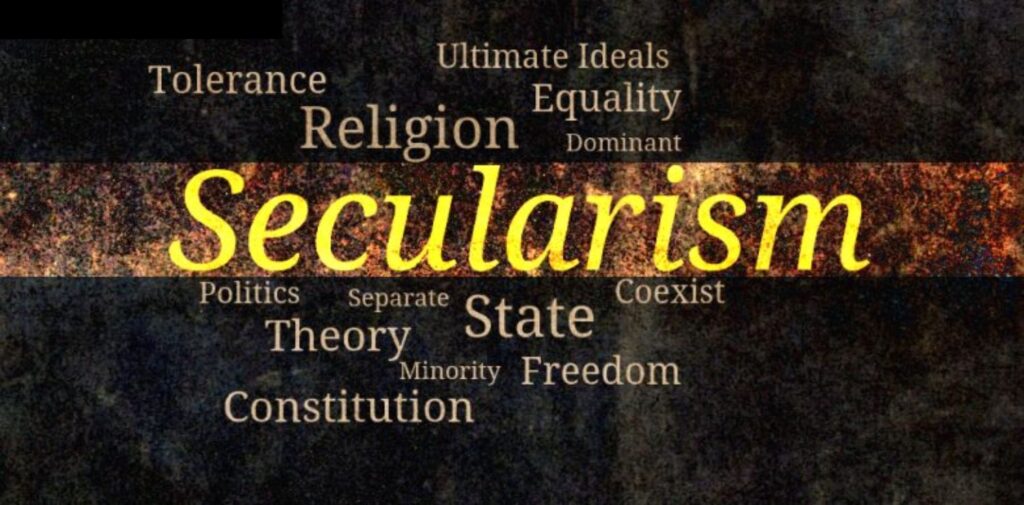
The Role of Secularism in Indian National Identity
One of the most important aspects of India’s national identity is its commitment to secularism. Secularism in India means that the state does not favor any particular religion and treats all religions equally. The Indian Constitution, adopted in 1950, enshrines secularism as one of its core principles, guaranteeing freedom of religion to all citizens. This principle of secularism has been vital in maintaining peace and unity in a country as religiously diverse as India.
Secularism allows people from different religious communities to live together peacefully and to practice their faith freely. It helps to ensure that no religion dominates the political landscape or imposes its beliefs on others. India’s secular identity is further reflected in the country’s diverse festivals, such as Diwali, Eid, Christmas, and Guru Nanak Jayanti, which are celebrated with equal enthusiasm across various parts of the country. These celebrations are not just about religious observance; they also reinforce the sense of community and national pride, as they bring people from all walks of life together.
Religious Pluralism and Cultural Harmony
India religious diversity is a source of strength, fostering a culture of pluralism that celebrates differences while promoting unity. Religious pluralism refers to the coexistence of multiple religions, where each community respects and accepts the beliefs and practices of others. In India, this concept is reflected in the everyday interactions of people from different faiths, who share common spaces, markets, and communities.
The Indian culture has evolved over centuries as a result of the harmonious blend of religious traditions. For example, many festivals, food traditions, and customs are a result of this blending of different religious practices. The concept of “Atithi Devo Bhava” (The guest is God) is an example of how India’s cultural values, rooted in various religious traditions, emphasize hospitality, respect, and inclusivity.
Moreover, religious pluralism has influenced India’s art, literature, and architecture. Temples, mosques, churches, and gurdwaras are not only places of worship but also reflect the rich cultural history of India. The architectural marvels of India, such as the Taj Mahal, Qutb Minar, and the Golden Temple, are symbols of India religious diversity and its ability to integrate different cultural influences.
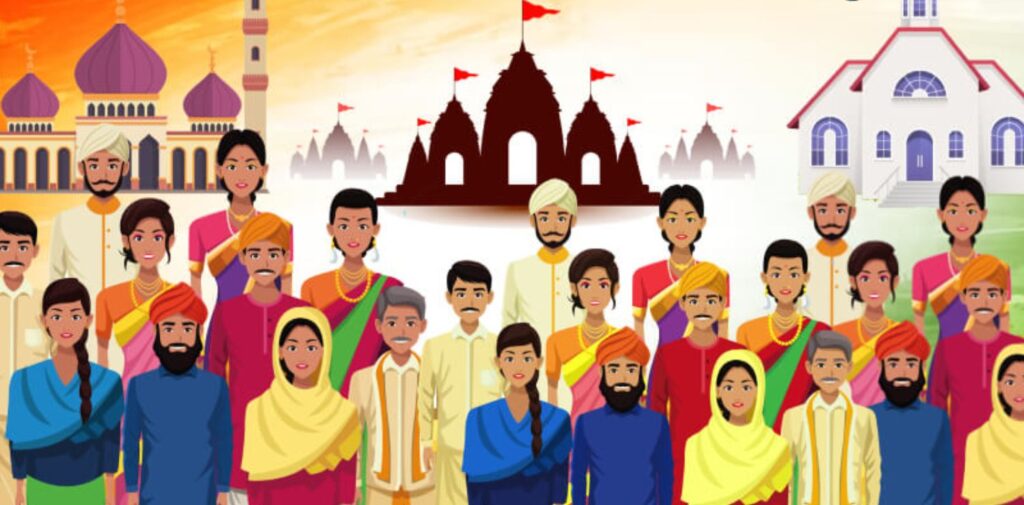
Challenges of Religious Diversity in Modern India
While India religious diversity is a source of strength, it also poses challenges. In recent decades, the country has seen tensions between religious communities, with incidents of communal violence and religious intolerance. These conflicts often arise due to political exploitation, social inequality, and economic disparities that divide religious groups.
Religious identity sometimes becomes a tool for political mobilization, which can lead to polarization and divisions in society. The rise of religious nationalism in some sections of society has created tensions between different religious groups, challenging the secular and pluralistic values that India holds dear. Despite these challenges, India continues to strive for unity and tolerance, with many people and organizations working tirelessly to promote peace and harmony.
The Indian government, along with various civil society groups, continues to promote the idea of religious tolerance and peaceful coexistence. Education and awareness programs that emphasize the importance of secularism and religious harmony play a significant role in reducing religious tensions. The role of the media, too, is critical in fostering a culture of respect and understanding, as it has the power to shape public opinion and influence attitudes toward different religions.
Religion and Politics: A Delicate Balance
Religion plays a significant role in shaping India’s political landscape. Political parties and leaders often appeal to religious sentiments to gain support from specific communities. However, the Indian Constitution ensures that religion should not dictate state policies. This delicate balance between religion and politics is essential to maintain the secular fabric of the nation.
India’s leaders, both past and present, have consistently emphasized the importance of unity in diversity. The vision of leaders like Jawaharlal Nehru, Mahatma Gandhi, and Dr. B.R. Ambedkar was to create an inclusive society where people of all religions could live together peacefully, without fear of discrimination or persecution. Their efforts to create a secular nation have laid the foundation for India’s current identity as a diverse yet united country.
In the 21st century, religion continues to influence political discourse in India. The ongoing debates around religious identity and its role in politics highlight the need for a balanced approach that promotes harmony without compromising the secular nature of the state. The challenge is to ensure that the nation remains united despite its religious diversity, and that no group feels marginalized or excluded from the broader national identity.
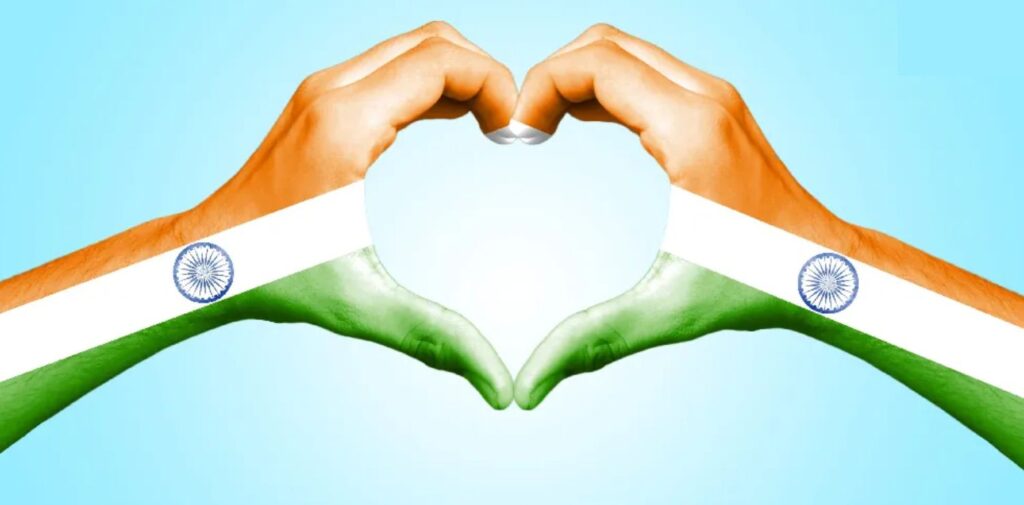
Religious Diversity as a Source of National Pride
India religious diversity is not just a political or social fact; it is also a source of immense pride. For many Indians, the ability to live in a society where people of different faiths coexist peacefully is a point of national pride. It is seen as a reflection of the country’s ancient traditions of tolerance, acceptance, and respect for all human beings.
Religious diversity in India contributes to the country’s global image as a land of peace, spirituality, and cultural richness. India’s role as a leader in promoting interfaith dialogue and global peace is widely recognized. The teachings of Indian religions, such as non-violence (ahimsa) and universal love, continue to inspire people around the world.
The influence of religious diversity on India’s national identity is also visible in its international relations. India’s commitment to promoting peace and tolerance in the global arena is closely tied to its religious traditions. Through forums like the International Day of Yoga, which promotes physical and mental well-being rooted in spiritual practices, India showcases its unique blend of religion and culture to the world.
Conclusion: India Religious Diversity
India religious diversity is an integral part of its national identity, shaping its culture, values, and social norms. The coexistence of multiple religions has led to a unique pluralistic society, where respect for differences is deeply ingrained. Despite challenges, the nation continues to promote secularism, religious tolerance, and cultural harmony, striving to build a society that celebrates diversity while fostering unity.
The influence of religious diversity on India’s identity is reflected in its history, culture, and politics. It is a source of strength, pride, and resilience, offering valuable lessons in coexistence and mutual respect. As India moves forward in the 21st century, its religious diversity will continue to be a guiding force in shaping its future and reinforcing its position as a leader in global peace and harmony.

